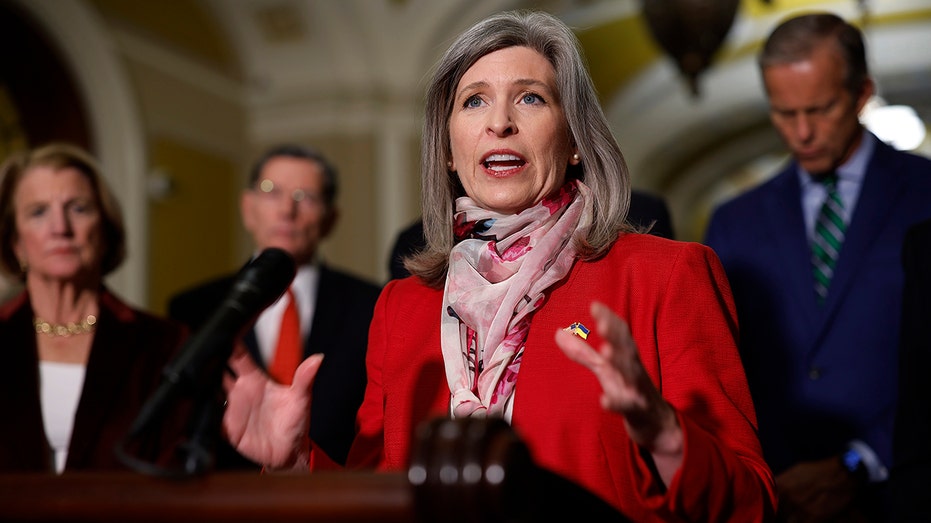The political landscape in the United States continues to evolve as Republican senators are making headlines with their latest budget proposals. These budget plans incorporate a unique approach, leveraging the popular cryptocurrency Dogecoin (DOGE) as a centerpiece in their fiscal strategies. This development comes amidst ongoing discussions surrounding Donald Trump’s envisioned comprehensive spending package, often referred to as the ‘big, beautiful bill.’
The integration of Dogecoin into budget proposals reflects a broader trend of cryptocurrency gaining traction among lawmakers. While traditional funding sources and budgetary measures still dominate political discourse, the inclusion of digital assets signifies a potential shift in how politicians view the economy and fiscal responsibility.
During a press conference, Republican senators proudly introduced their DOGE budget proposals, aiming to not only fund various government initiatives but also to engage younger voters who are increasingly interested in the world of cryptocurrency. By embracing Dogecoin, which started primarily as a meme but has garnered a significant following, these lawmakers are seeking to align themselves with the technological innovations that resonate with a new generation.
The senators outlined several key components of their budget proposals. Firstly, they suggested allocating a portion of federal funds towards the promotion and mainstream adoption of cryptocurrencies like Dogecoin. This could potentially stimulate the economy by creating jobs in tech sectors and industries associated with blockchain technology.
Another vital aspect of the DOGE budget is the proposed educational program aimed at providing citizens, especially students, with knowledge about cryptocurrencies. By increasing financial literacy related to digital currencies, the senators hope to foster a more informed public capable of navigating the modern financial landscape.
Interestingly, the senators are also advocating for a pilot program that would allow certain federal payments, such as tax refunds or social security benefits, to be distributed in cryptocurrencies, including Dogecoin. This measure aims to modernize the delivery of government funds and make it more efficient, while also appealing to the growing number of people who are turning to digital currencies for transactions.
In response to these proposals, Donald Trump himself has weighed in, expressing enthusiasm for the incorporation of Dogecoin in the budget plans presenting a forward-looking vision for America’s financial future. Trump’s backing signals a potential alignment between mainstream Republican politics and grassroots movements within the cryptocurrency community.
Nonetheless, the initiative has not been without its skeptics. Critics argue that tying government budgets to volatile cryptocurrencies like Dogecoin could pose significant risks to fiscal stability. Given the erratic price fluctuations that DOGE has experienced over the years, relying on it as a financial cornerstone could be seen as a gamble that may not pay off.
Furthermore, there are concerns that this new approach could distract from more pressing economic issues, such as infrastructure needs and social welfare programs. Detractors have pointed out that while the allure of cryptocurrency is enticing, it should not overshadow the importance of addressing traditional economic concerns that affect millions of Americans daily.
Despite the pushback, the incorporation of DOGE into budget considerations has sparked a lively discussion across the political spectrum. Supporters argue that embracing modern technologies and innovative financial systems can lead to enhanced economic growth and a more adaptable government.
Moreover, as younger voters actively participate in politics, Republican senators are keenly aware that engaging with their interests may foster greater support for their agendas. This effort reflects an understanding that modernization and innovation are increasingly vital to political success in today’s economy.
As the legislative session progresses, it will be crucial to see how these DOGE budget proposals evolve. Lawmakers will likely face significant hurdles in garnering bipartisan support, but the conversation has started, and that may pave the way for future discussions on the role of cryptocurrency in governmental finance.
In anticipation of the upcoming budget debates, analysts and political commentators are keeping a close watch on the Republican strategy. If these DOGE initiatives gain traction, they may set a precedent for future budgetary approaches that incorporate digital currencies, perhaps reshaping the way Congress views finance and spending.
Additionally, it remains to be seen how the general public will respond. Public opinion on cryptocurrencies like Dogecoin varies widely, with some viewing it as a legitimate financial instrument while others consider it speculative and hazardous. Engaging the electorate in discussions about cryptocurrency will be essential for any successful implementation of these budget proposals.
Looking ahead, if the Republicans’ gambit with Dogecoin proves to be successful, it may inspire other political factions to explore their budgetary approaches to include similar digital assets. This could usher in a new era of fiscal policy that embraces technology and innovation in unprecedented ways.
Ultimately, the intersection of cryptocurrency and politics is likely to grow in importance as more lawmakers explore how to integrate new financial systems into their agendas. The outcome of these DOGE budget proposals may serve as a litmus test for Republicans, revealing whether they can adapt to changing economic realities and stay relevant to modern voters.
As discussions continue in the Senate, one thing is clear: the future of fiscal policy in America may soon be entwined with the realm of cryptocurrencies. Whether this new direction proves beneficial or detrimental remains to be seen, yet the pioneering spirit showcased by Republican senators indicates a willingness to embrace change and usher in a new era of policy-making.
In conclusion, the Republican senators’ adventurous budget approach centered on Dogecoin may represent more than just a financial strategy; it symbolizes a significant cultural shift in how politics interacts with emerging technologies. As Americans follow these developments, the political implications of cryptocurrencies may reverberate throughout the country, fundamentally reshaping the landscape of governance and fiscal responsibility.
































